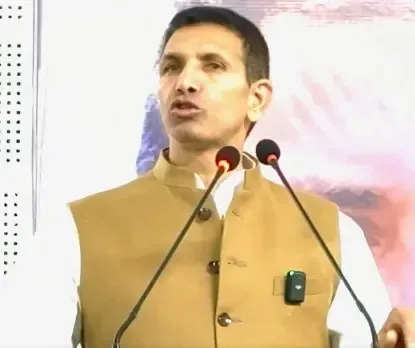Is the Yunus Regime Responsible for Bangladesh's Economic Crisis?

Synopsis
Key Takeaways
- Over 10 million jobs lost in Bangladesh.
- Widespread hunger affecting a significant portion of the population.
- Banking sector facing enormous debt.
- Need for urgent economic policy reforms.
- Call for improved governance and international cooperation.
Dhaka, Aug 7 (NationPress) The Awami League of Bangladesh has raised alarms regarding the country’s escalating economic crisis, attributing the deteriorating situation to the inept administration led by Muhammad Yunus. The party has pointed fingers at the interim government for the rampant financial turmoil, massive job losses, increasing hunger, and the downfall of both businesses and banking institutions.
In its assertions, the party indicated that over 10 million jobs have vanished within the past year, a significant rise in food insecurity has been observed, and a multitude of small enterprises has closed their doors. The banking sector is grappling with enormous debt.
A substantial portion of the populace is currently facing hunger, with many individuals skipping meals. The workforce is experiencing extensive layoffs, and the once-flourishing middle class is swiftly diminishing.
The statement further underscored that both exports and imports have contracted significantly, production has slowed down, and the profitability of businesses has plummeted drastically under the interim government's management.
The Awami League stated, “The primary factors behind this crisis are ineffective governmental policies, incompetence, and rampant corruption. The failure to apply sound economic strategies has led Bangladesh into a profound financial crisis. The illegitimate government and its inability to govern effectively have attracted widespread international criticism.”
The party claimed that the global image of Bangladesh has been tarnished.
“International governments, analysts, and media outlets have consistently criticized the current administration and its economic policies. Consequently, foreign investors are wary of investing in Bangladesh, damaging the country’s global standing,” it added.
The Awami League contended that authentic development necessitates effective policies, swift decision-making, and genuine governance—elements that are evidently absent.
According to the party, Bangladesh's long-term development strategies have encountered substantial setbacks, and the nation is lagging in global advancements due to escalating administrative inefficiency, economic turbulence, and deteriorating diplomatic relationships.
To reverse the ongoing decline, the party emphasized the pressing need for “correct economic policies, effective measures, and strong leadership,” asserting that restoring investor confidence will require significant enhancements in the nation's political and economic environment.
The statement further asserted, “Eliminating political instability and corruption is essential for establishing a functional and accountable government. Addressing this issue will necessitate domestic policy reforms, international cooperation, and public involvement.”
Reiterating its criticism of the current leadership, the Awami League held that the interim administration’s “incompetence and mismanagement” are primarily responsible for the grave economic crisis Bangladesh is currently enduring.
“The lack of foresight and ineffective measures have profoundly impacted the lives of ordinary citizens,”
the party concluded.









